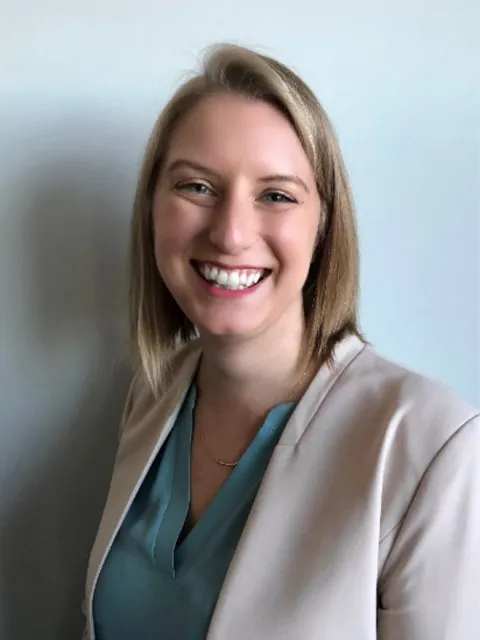

Rachel Weiskittle, Ph.D.
Assistant Professor, Geropsychology PsychologyOffice Hours: By Appointment
Accepting MA & PhD (Geropsych) students Fall 2026
Office Hours: By Appointment
Accepting MA & PhD (Geropsych) students Fall 2026
Professional Summary
Dr. Weiskittle joined the UCCS Psychology Department in Fall 2021. She earned her PhD in clinical psychology with specialization in behavioral medicine at Virginia Commonwealth University and completed her predoctoral clinical internship in behavioral medicine at the Charleston Consortium Internship Program. Following her postdoctoral clinical fellowship in Geropsychology at the VA Boston Healthcare System, Dr. Weiskittle was an Advanced Research Fellow at the New England Geriatric Research Education and Clinical Center (NE GRECC).
Dr. Weiskittle is currently accepting graduate students and undergraduate research assistants. https://weiskittlelab.squarespace.com
The Weiskittle Lab
The Weiskittle Lab conducts basic and applied research to develop evidence-based clinical innovations that are directly informed by the self-reported needs of the targeted clinical population. Clinical innovations recently developed by the Weiskittle Lab have focused on caregivers, socially isolated older adults, and individuals who have experienced traumatic loss, among others.
Areas of Interest
Dr. Weiskittle researches psychosocial factors influencing end-of-life experiences and adjustment to loss, with emphasis in developing translational clinical innovations for older adult, underserved and minoritized communities.
Her recent work has focused on marginalized groups at the end-of-life, such as those under legal guardianship, and on individuals recently bereaved or socially isolated due to the effects of COVID-19.
Dr. Weiskittle is also interested in creative adaptations of educational and treatment methods that address health service inequities. She is the host and creator of the podcast “Talking Later: Veterans’ Stories of Late-Life PTSD The Geropsychology Podcast Silver Telly Award winners for their educational video series on Veteran End of Life Care
Education
- PhD, Clinical Psychology, Virginia Commonwealth University, Richmond, VA
- MS, Clinical Psychology, Virginia Commonwealth University, Richmond, VA
- BA, Psychology, The Ohio State University, Columbus, OH
Teaching
- PSY 4002 - Honors II
- PSY 4620 - Seminar in Developmental Psychology; The Psychology of End of Life
- PSY 6720 - Ethics and Practice Standards: Professional Development I
- PSY 6740 - Clinical Practicum
PSY 6850 – Clinical Interviewing and Personality Assessment
Selected Publications
Moye, J., Cohen, A.B., Stolzmann, K., Auguste, E.J., Catlin, C.C., Sager, Z.S., Weiskittle, R.E., Woolverton, C.B., Connors, H.L., Sullivan, J.L. (2022). Guardianship Before and Following Hospitalization. Healthcare Ethics Forum. 10.1007/s10730-022-09469-9. ISBN: 0956-2737.
Weiskittle, R., Tsang, W., Schwabenbauer, A., Andrew, N., Mlinac, M. (2021). Feasibility of a COVID-19 rapid response telehealth group addressing older adult worry and isolation. Clinical Gerontologist. https://doi.org/10.1080/07317115.2021.1906812
Auguste, E.J., Weiskittle, R., Sohl, S., Danauer, S.C., Doherty, K., Naik, A., Moye, J. (2021). Enhancing access to yoga for older male Veterans with cancer: Examining beliefs about yoga. Federal Practitioner. 38(10):450-458. DOI: 10.12877/fp.0180
O’Malley, K., Etchin, A.G., Auguste, E.J., Pless Kaiser, A., Korsun, L., Weiskittle, R.E., Sager, Z.S., Moye, J. (2021). Advancing trauma-informed care education for hospice and palliative care staff: Development and evaluation of educational videos. Journal of Hospice and Palliative Nursing. 10.1097/NJH.0000000000000804
Weiskittle, R., Gramling, S. (2017). The therapeutic effectiveness of using visual art modalities with the bereaved: A systematic review Journal of Psychology Research and Behavior Management. 11, 9-24. 10.2147/PRBM.S131993.
In the Press
Rose Aguilar. (2022, March 3). How older adults can find support for loneliness, depression & anxiety. [Radio broadcast]. KALW Public Media / 91.7 FM Bay Area. Your Call. https://www.kalw.org/show/your-call/2022-03-03/how-older-adults-can-find-support-for-loneliness
Simon, Scott. (2022, February 19). Elderly people make up 75% of COVID-19 deaths – partially due to loneliness. [Radio broadcast]. NPR. Weekend Edition Saturday. https://www.npr.org/2022/02/19/1081948849/elderly-people-make-up-75-of-covid-19-deaths-partially-due-to-loneliness